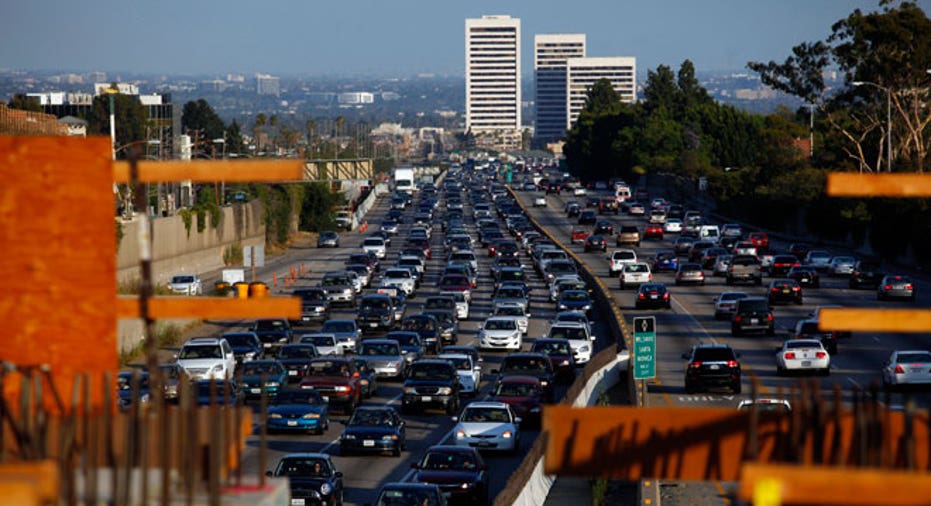Driving Too Slow, and Other New Traffic Laws

July 1 opens a new fiscal year for many states. Here's a highlight of some new state laws that affect drivers.
Florida
Florida drivers can no longer be ticketed for turning right on red at red-light camera intersections if they come to a complete stop before turning - even if the motorists fails to stop before the stop line.
Florida motorists who are slow need to be move out to of the fast lane. State statutes now allow police to penalize drivers who travel more than 10 mph below the posted speed limit in the left lane of a multiple-lane highway. The ticket will cost $60 (plus court costs) and place three points on your license, which in turn could cause your car insurance rates to rise.
Hawaii
Hawaii's ban on handheld cellphone use and texting while driving goes into effect. They are primary offenses, and if caught native and tourist alike can receive a fine of $100 to $200 for a first offense.
Hawaii's “all riders” seat belt law also goes into effect. Both front and back seat passengers must be buckled up properly or receive a fine of around $100.
Indiana
Indiana joins 20+ other states that allow electronic proof of car insurance. The new state law says that "electronic formats include the display of an electronic image on a telecommunications device." (See “License, registration and smartphone”)
Kentucky
As of June 25, Kentucky permits motorists to provide proof of auto insurance in an electronic format by download or transmission in real time to a portable electronic device or via an application on a mobile device. The law specifically notes that a photographic copy of the insurance card is not acceptable. In addition, there is a requirement that the car owner keeps the paper insurance card in the motor vehicle.
North Dakota
DUI penalties are being increased across the board in this state. This includes:
- A driver with a blood alcohol concentration (BAC) up to 0.16 will receive a minimum fine of $500 for a first offense, up from $250.
- If the BAC s higher than .016, the motorist will fall into a new aggravated DUI category that carries a minimum fine of $750 and a mandatory jail sentence of two days or 10 hours of community service per day of jail time (20 hours max).
- Repeat offenders face higher fines, mandatory jail sentences (ranging from 10 days in jail to one year and one day) and probation. They also have to participate in the state's 24/7 Sobriety Program, which requires daily alcohol screenings.
- A fourth, or subsequent offense, is considered a Class C felony and punishable by up to five years in prison and a $5,000 fine.
- A motorist who causes the death of another person while driving under the influence can be charged with a class A felony and can face up to 20 years in prison.
Refusing to submit to a blood or breath test is now considered as serious as a crime as a DUI.
South Dakota
Novice drivers with an instruction permit or minor's permit/intermediate license are banned from using wireless devices while driving. The offense is secondary, so the young driver must be pulled over for a primary violation, such as speeding, to be cited.
Virginia
Texting while driving is now a primary offense that is punishable by a $125 fine. The law states that reading a text message, not just writing one, is prohibited. However, inputting information into a GPS device for driving directions and using your hands to make a phone call is still allowed.
This new law also raises the fine to $125 (from a mere $20) for a first offense and $250 for subsequent violations. And the law is written so that reckless driving charges may be applied in some accidents that involved texting; that conviction comes with a minimum $250 fine.
Harsher penalties are also now in place for those cited multiple times for drunken driving. A DUI will be categorized as a Class 6 felony and come with a mandatory fine of $1,000 and one year in prison if previously the driver had a conviction for:
- A DUI that resulting with a victim receiving permanent injury or a fatality
- A DUI felony offense
- Involuntary manslaughter
The look-back period also has changed from 10 years to now include all convictions, no matter how long ago they occurred.
West Virginia
West Virginia's distracted driving law went into effect in June 2012, but enforcement of the portion of the law covering speaking on a handheld cellphone just now is beginning. It's now a primary offense, and drivers can face up to a $100 for a first offense, $200 for a second offense and $300 for any subsequent offenses. Third and subsequent offenses come with three points on your driving record.
No matter if you live in one of the states above or elsewhere, when a violation is looked at as a moving violation by your state it's looked at by your auto insurance company as one as well. And the more severe an offense, the higher the surcharge by your auto insurer. So, if you receive a DUI not only may you end up with fines, penalties and lawyer bills, but also pretty hefty car insurance bill.
The original article can be found at CarInsurance.com:New driving laws in many states



















